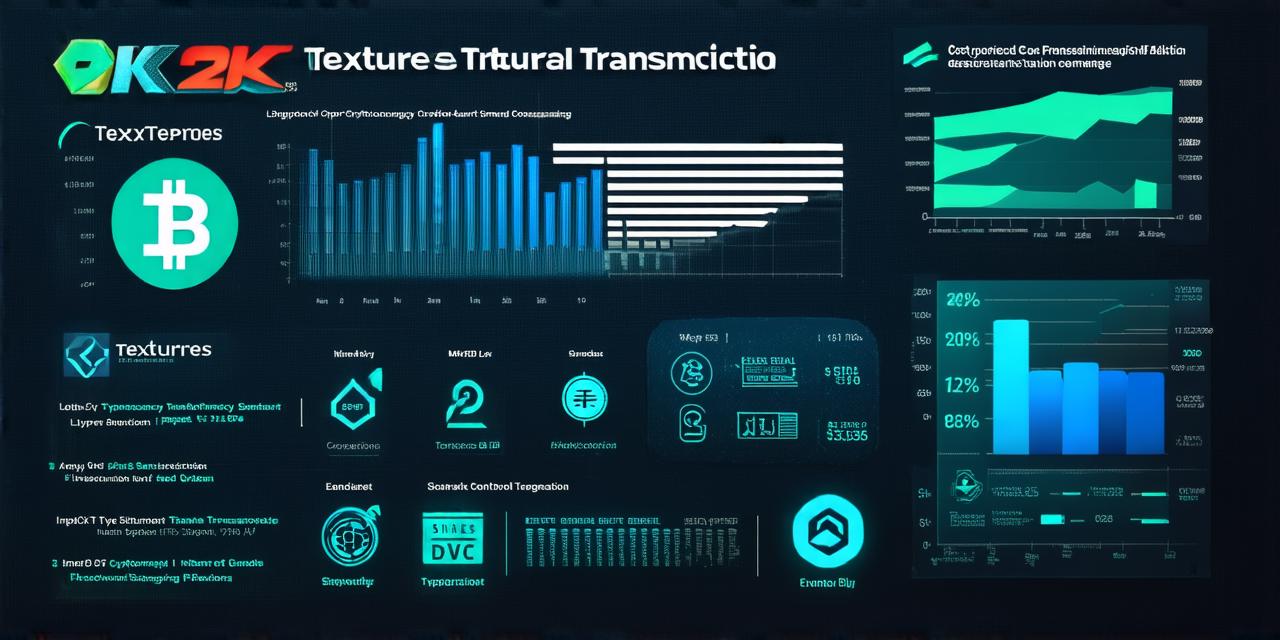What are Cryptocurrency Transaction Fees?
Cryptocurrency transactions involve transferring funds from one digital wallet to another. These transactions are recorded on a public ledger called the blockchain, which ensures transparency and security. However, every transaction incurs a fee, which is paid to the network participants who validate and process the transaction.
Why do Cryptocurrency Transaction Fees Matter?
Transaction fees play an important role in the efficiency and usability of cryptocurrencies. High transaction fees can make it difficult for users to conduct small transactions or store their funds, which can limit the adoption of cryptocurrencies. On the other hand, low transaction fees can attract more users and increase the popularity of cryptocurrencies.
Real-Life Examples of High Transaction Fees
One of the most well-known examples of high transaction fees is Bitcoin’s transaction fees. During peak usage periods, such as holidays or major events, Bitcoin transaction fees can reach several dollars per transaction. This makes it difficult for small transactions and can limit the adoption of Bitcoin.
Real-Life Examples of Low Transaction Fees
On the other hand, some cryptocurrencies have lower transaction fees that make them more attractive to users and developers. For example, Bitcoin Cash (BCH) is a fork of Bitcoin that aims to increase its scalability and transaction speed. BCH has significantly lower transaction fees than Bitcoin, making it easier for users to conduct small transactions and store their funds.
How do Transaction Fees Affect the Efficiency of Cryptocurrency Networks?
Transaction fees play a crucial role in the efficiency of cryptocurrency networks. High transaction fees can lead to network congestion, which can slow down transaction times and increase the risk of double-spending attacks.
How do Transaction Fees Affect the Adoption of Cryptocurrencies?
Transaction fees can also affect the adoption of cryptocurrencies by users and businesses. High transaction fees can make it difficult for users to conduct small transactions or store their funds, which can limit the use cases for cryptocurrencies. On the other hand, low transaction fees can make cryptocurrencies more attractive to users and businesses looking for a fast, cost-efficient way to transfer funds.
How do Transaction Fees Affect the Security of Cryptocurrency Networks?
Transaction fees can also affect the security of cryptocurrency networks. High transaction fees can increase the risk of double-spending attacks, as attackers may be willing to pay higher transaction fees to conduct malicious transactions.
How do Transaction Fees Affect the Sustainability of Cryptocurrency Networks?
Transaction fees also play a role in the sustainability of cryptocurrency networks. High transaction fees can lead to network congestion, which can result in slower transaction times and higher energy consumption due to the increased computational power required to process transactions.
How do Transaction Fees Affect the Usability of Cryptocurrency Applications?
For crypto developers, understanding how transaction fees affect the usability of their applications is crucial. High transaction fees can make it difficult for users to conduct small transactions or store their funds, which can limit the adoption of cryptocurrencies. On the other hand, low transaction fees can make cryptocurrencies more attractive to users and increase the popularity of crypto applications.
How do Transaction Fees Affect the Cost of Storing Cryptocurrencies?
Transaction fees also play a role in the cost of storing cryptocurrencies. High transaction fees can make it difficult for users to conduct small transactions or store their funds, which can lead to higher storage costs due to the need for more frequent transactions.
How do Transaction Fees Affect the Competition among Cryptocurrencies?
Transaction fees can also affect the competition among cryptocurrencies. High transaction fees can make it difficult for smaller or less well-established cryptocurrencies to compete with more popular ones, as users may prefer to use the ones with lower transaction fees.
How do Transaction Fees Affect the Regulation of Cryptocurrencies?
Transaction fees also play a role in the regulation of cryptocurrencies. High transaction fees can make it difficult for users to conduct small transactions or store their funds, which can limit the use cases for cryptocurrencies and increase the risk of illegal activities.
How do Transaction Fees Affect the Future of Cryptocurrency Networks?
The future of cryptocurrency networks will depend on how transaction fees are managed. High transaction fees can lead to network congestion and increase the risk of double-spending attacks, which can undermine the security and usability of cryptocurrencies. Low transaction fees can make cryptocurrencies more attractive to users and businesses, but can also make it difficult for network participants to earn rewards and maintain the network’s stability.
How do Transaction Fees Affect the Adoption of Blockchain Technology?
Transaction fees also play a role in the adoption of blockchain technology. High transaction fees can limit the use cases for blockchain-based applications, as users may prefer to use other technologies with lower transaction costs.

How do Transaction Fees Affect the Future of Decentralized Finance (DeFi)?
Transaction fees also play a role in the future of decentralized finance (DeFi). High transaction fees can limit the use cases for DeFi applications, as users may prefer to use traditional financial systems with lower transaction costs. Low transaction fees can make DeFi applications more attractive to users and increase the adoption of DeFi technology.
How do Transaction Fees Affect the Future of Stablecoins?
Transaction fees also play a role in the future of stablecoins. High transaction fees can limit the use cases for stablecoins, as users may prefer to use other payment systems with lower transaction costs. Low transaction fees can make stablecoins more attractive to users and increase the adoption of stablecoin technology.
How do Transaction Fees Affect the Future of Cryptocurrency Mining?
Transaction fees also play a role in the future of cryptocurrency mining. High transaction fees can lead to increased network congestion, which can make it more difficult for miners to validate and earn rewards. Low transaction fees can make it easier for miners to validate transactions and earn rewards, but can also increase the risk of double-spending attacks.
How do Transaction Fees Affect the Future of Cryptocurrency Trading?
<p
